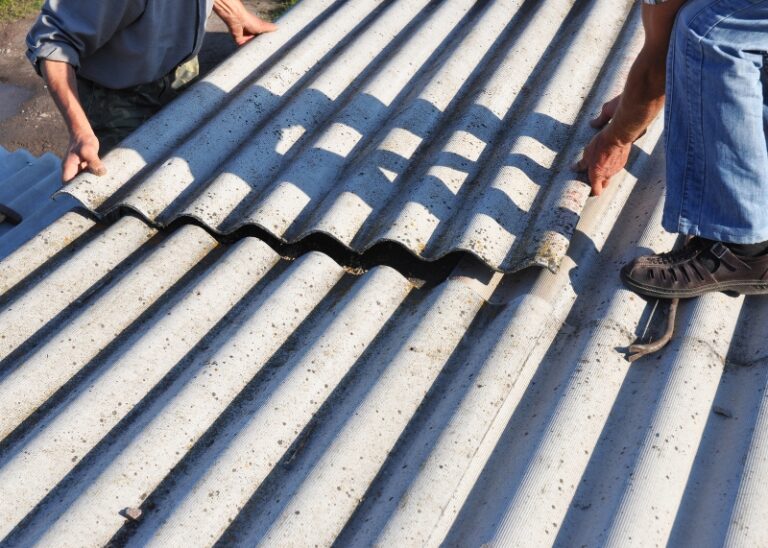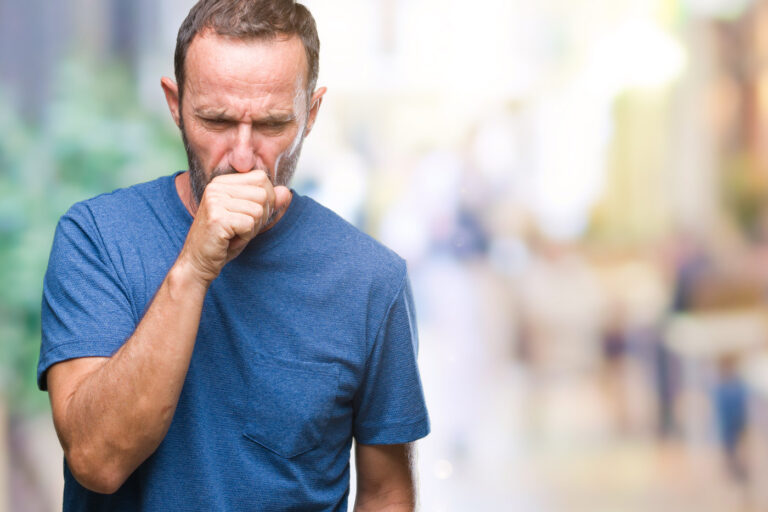Dust disease lawyers
Dust disease claims:
Your rights, our fight
When you or a loved one is diagnosed with a dust-related disease, the impact on your life can be devastating. At GMP Law, we understand that you’re facing not just physical challenges, but emotional and financial ones too.
Our experienced team is here to guide you through the compensation process with the care and understanding you deserve.
Why Choose Gerard Malouf & Partners
Understanding dust disease claims
Dust diseases are serious chronic lung conditions caused by prolonged exposure to harmful dust particles. Common substances that can trigger dust diseases include:
- Asbestos
- Crystalline silica
- Coal dust
- Cotton dust
- Bagasse
- Mouldy hay and straw
- Metal dusts
- Berylium
- Wood dust.
These diseases primarily affect workers in industries such as:
- Shipbuilding
- Manufacturing
- Installation
- Sandblasting
- Tunnelling
- Mining
- Construction and trades.
It’s important to understand that symptoms may not appear immediately after exposure. Many individuals develop dust-related diseases years, or even decades, after their initial contact with harmful materials, often experiencing them in their retirement years.
While workplace safety standards have improved over time, new cases continue to emerge, including among younger adults exposed to hazardous substances.
We're here to help.
Dust disease exposure
In Australia, exposure to dust, particularly asbestos, has occurred in three distinct waves:
First wave: Traditional workplace exposure (1930s to 1980s)
During this period, workers in heavy industries such as shipbuilding, manufacturing, and construction were directly exposed to asbestos and other harmful materials. Safety regulations were minimal, resulting in high-intensity exposure.
Second wave: Secondary exposure (1960s to 1990s)
This wave saw family members and others exposed to dust particles, particularly asbestos, through contact with workers’ contaminated clothing. Spouses, who often washed work clothes, and children, who came into close contact with their parents’ work gear, were disproportionately affected. Additionally, individuals living near industrial facilities were also at risk of secondary exposure.
Third wave: DIY and modern exposure (1990s to Present)
The rise in home renovation projects led to new exposures, as DIY enthusiasts and renovators unwittingly disturbed asbestos in older homes. Asbestos-containing materials were commonly used in residential buildings, and without proper safety measures, many home renovators and tradespeople have been exposed during renovations.
Understanding these exposure waves is critical when pursuing dust disease claims, as it can help to identify when and how harmful exposure occurred. This is often key to securing compensation for those affected.
Learn more: The third wave of asbestos litigation: Emerging risks from DIY projects

Eligibility for dust disease compensation
You may be eligible for dust disease compensation if:
- You have been medically diagnosed with a chronic lung or dust-related disease
- There is clear medical evidence confirming your condition
- Your condition can be linked to exposure to harmful dust particles.
Compensable dust diseases include:
1. Asbestos-related diseases
- Mesothelioma
- Asbestosis
- Asbestos-related pleural disease
- Asbestos-related lung cancer
2. Silica-related diseases
- Silicosis (acute, accelerated, and chronic forms)
- Progressive massive fibrosis
- Silica-associated lung cancer
- Scleroderma with silica exposure
3. Other occupational dust diseases
- Coal workers’ pneumoconiosis (black lung disease)
- Hypersensitivity pneumonitis (farmers’ lung)
- Byssinosis (brown lung disease from cotton dust)
- Berylliosis
- Hard metal lung disease
- Siderosis (welder’s lung).
Common scenarios where people may be eligible include:
- Workplace exposure during construction or renovation work
- Mining or quarry work
- Manufacturing involving hazardous materials
- DIY home renovations involving asbestos
- Secondary exposure through contact with someone who worked with harmful materials.
Even if you’re uncertain about claiming, we encourage you to reach out. Our free initial consultation means you have nothing to lose by exploring your options.
Factors affecting compensation
Many factors can influence your compensation:
1. The severity of the condition
- Type of dust disease diagnosed
- Impact on your quality of life
- Life expectancy implications
2. Economic impact
- Lost income and future earning capacity
- Medical expenses
- Care and support needs
3. Exposure circumstances
- Duration and intensity of exposure
- Whether proper safety measures were in place
- Number of potential defendants
4. Age and life circumstances
- Your age at diagnosis
- Family dependencies
- Current employment status.
At GMP Law, we’re committed to helping you understand your rights and options. We’ll work tirelessly to ensure you receive the maximum compensation you’re entitled to under the law.
Learn more: How Much Compensation for Mesothelioma Could I Win?

No Win No Fee
Fee transparency that you can trust
At GMP Law, we’re committed to ensuring you have nothing to lose.
If we don’t win your case, you won’t pay a cent for our services. This means you can focus on healing without worrying about legal costs.
How it works
No upfront costs
No contingency fee
We’ll only charge you if we win.
We maintain integrity by carefully evaluating each case. If we believe it’s unlikely to result in compensation or if the costs outweigh the benefits, we won’t take it on.
This commitment to our client’s best interests, as well as fee transparency, sets us apart from other law firms.
With a 98% success rate and over $4 billion in settlements, we’re dedicated to delivering exceptional results for our clients.
Frequently asked questions about dust disease claims
How quickly can I receive compensation for a dust disease?
While every case is unique, we understand the urgency, especially for those with serious diagnoses. Cases typically resolve within a few months to 18 months. However, for clients with terminal conditions like mesothelioma, we can fast-track claims through expedited processes. Courts recognise the urgency of these cases and provide special provisions to hear evidence quickly.
What happens if I pass away before my claim is completed?
It’s important to initiate your claim while you are able to provide evidence, but if you pass away during the claims process, your family can continue pursuing the claim on your behalf. We strongly encourage starting the process as soon as possible after diagnosis to ensure your evidence is properly documented and your family’s interests are protected.
Once your claim is lodged, you can also choose to have your family complete the process after your death if you prefer to focus on spending your final months with them. This way, your loved ones can ensure the claim is completed without additional stress or burden on you.
Can I make a claim if I was exposed to dust many years ago?
Yes. Due to the long latency period of dust diseases, many claims relate to exposure that occurred decades ago. There are special provisions in the law that recognise this characteristic of dust diseases, and time limitations generally don’t apply in the same way as other personal injury claims.
GMP Law offers free initial consultations to help individuals explore their options. Our experienced lawyers can guide you through the complex process of making a dust disease claim.
What compensation can I claim for?
Compensation may cover:
- Pain and suffering
- Past and future medical expenses
- Lost income and superannuation
- Care costs
- Home modification expenses
- Equipment and mobility aids.
Can I claim if I was self-employed or a contractor?
Yes. Even if you were self-employed or working as a contractor, you may still be eligible for compensation. Claims can be made against manufacturers or products containing harmful dust, occupiers of premises where exposure occurred, or other entities responsible for your exposure.
What if I smoked while working with dust materials?
Being a smoker doesn’t disqualify you from making a claim. While smoking can complicate some aspects of the claim, you may still be entitled to compensation if your condition is linked to dust exposure. Each case is assessed on its individual circumstances.
Justice for victims of dust diseas
At GMP Law, we’ve successfully represented clients from various walks of life, processing claims for harm sustained from harmful dust exposure.
Mesothelioma sufferer gets $460k compensation due to workplace negligence
Background
Our client, a former labourer who later became a teacher in Western Sydney schools, was diagnosed with mesothelioma. His only known exposure to asbestos occurred during a short period of employment as a labourer, shortly after finishing school.
The challenge
The client’s deteriorating health required urgent action to secure his evidence and negotiate a settlement that would provide financial security for his family.
GMP Law’s approach
Quickly commenced proceedings against the former employer and premises occupier
Expedited the collection of evidence due to the client’s declining health
Conducted efficient settlement negotiations
Focused on securing timely compensation while allowing our client to focus on his family.
Outcome
We successfully secured $460,000 in damages for the family, providing financial security before the client’s passing just weeks after settlement.
Real cases, real results
The compensation claim process: Your journey with GMP Law
Initial consultation
Evidence gathering
Claim submission
Negotiation
Court representation
Ongoing support
Our promise to you
Why trust GMP Law with your dust disease claim?
At GMP Law, we handle your claim so you can concentrate on what matters most.
We commit to
Clear, straightforward communication
Regular updates on your case as it progresses
A personal injury lawyer who understands your unique situation
Vigorous negotiation to maximise your compensation
Empathetic support throughout your journey
Specialised knowledge
Our accredited personal injury lawyers have years of experience in accident injury claims, giving us deep insight into the nuances of these claims.
Proven track record
Difficult case policy
Australia-wide assistance
With lawyers across the country, we’re here to help, wherever you are.
Meet the dust disease team
Meet some of the diverse and dynamic dust disease lawyers who support our clients with their mesothelioma and asbestosis claims.
We're here to help maximise your compensation
Book your free, confidential consultation with one of our dust disease lawyers using the form below, or simply call us 1800 004 878.




